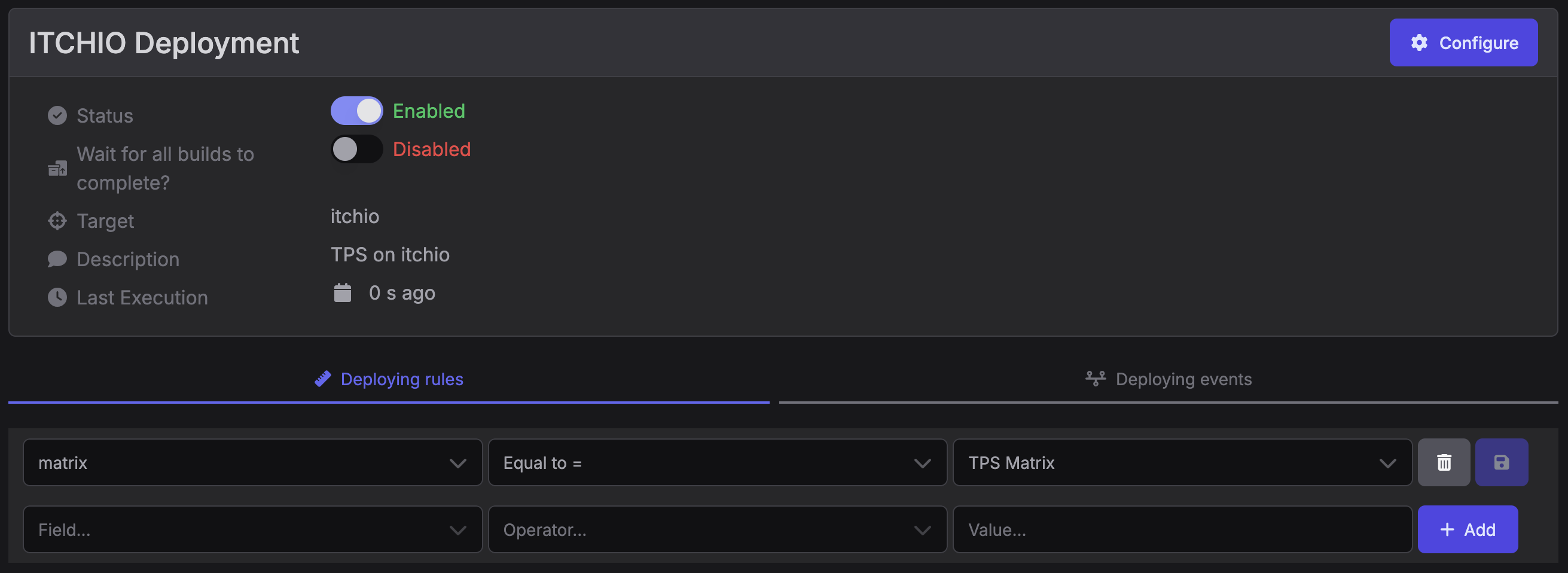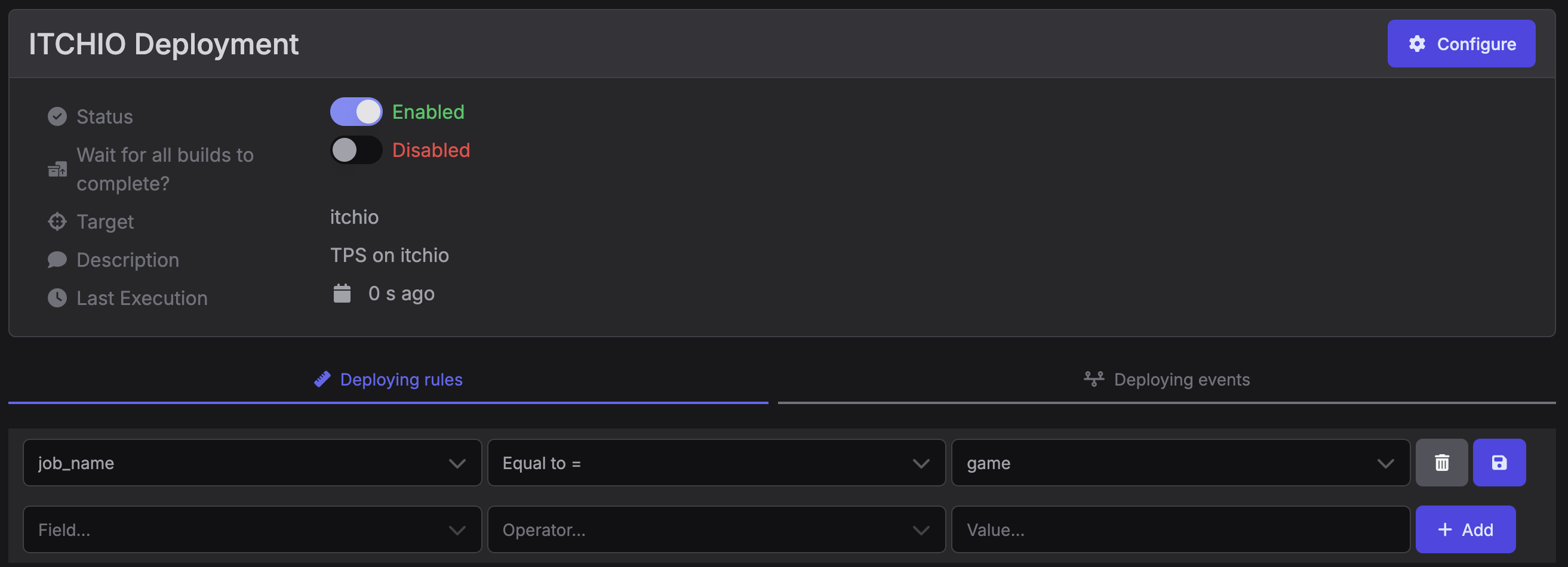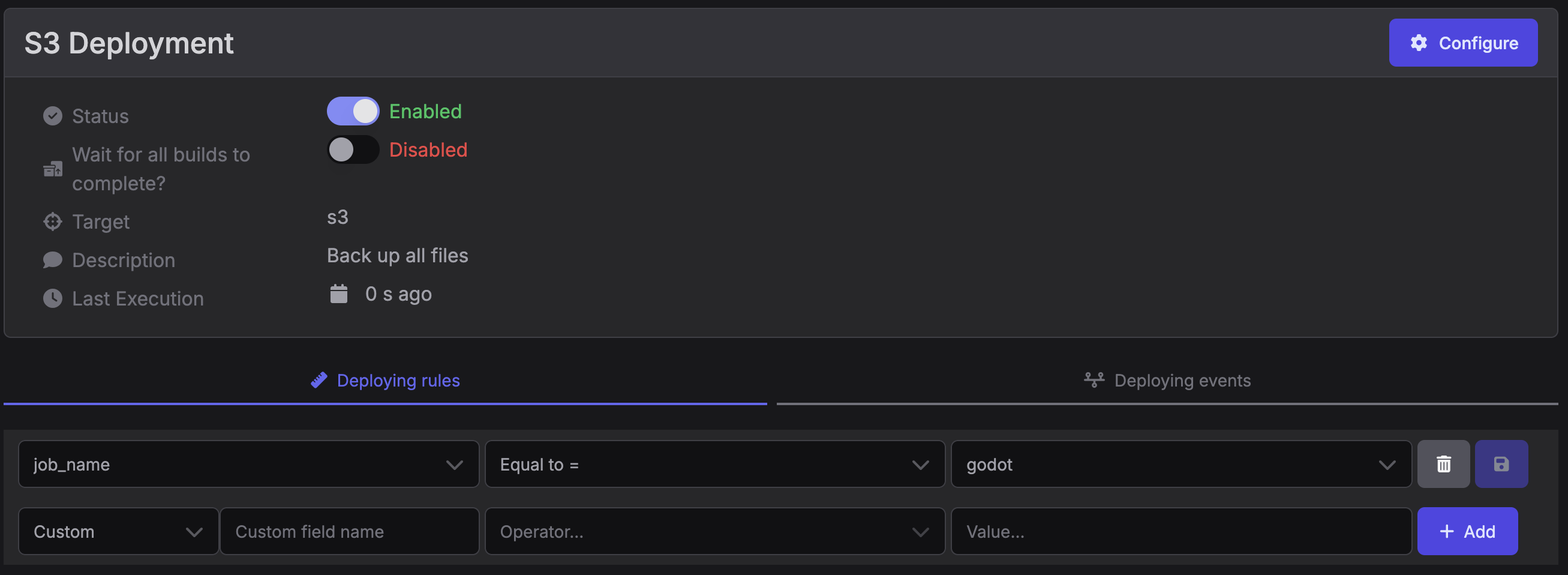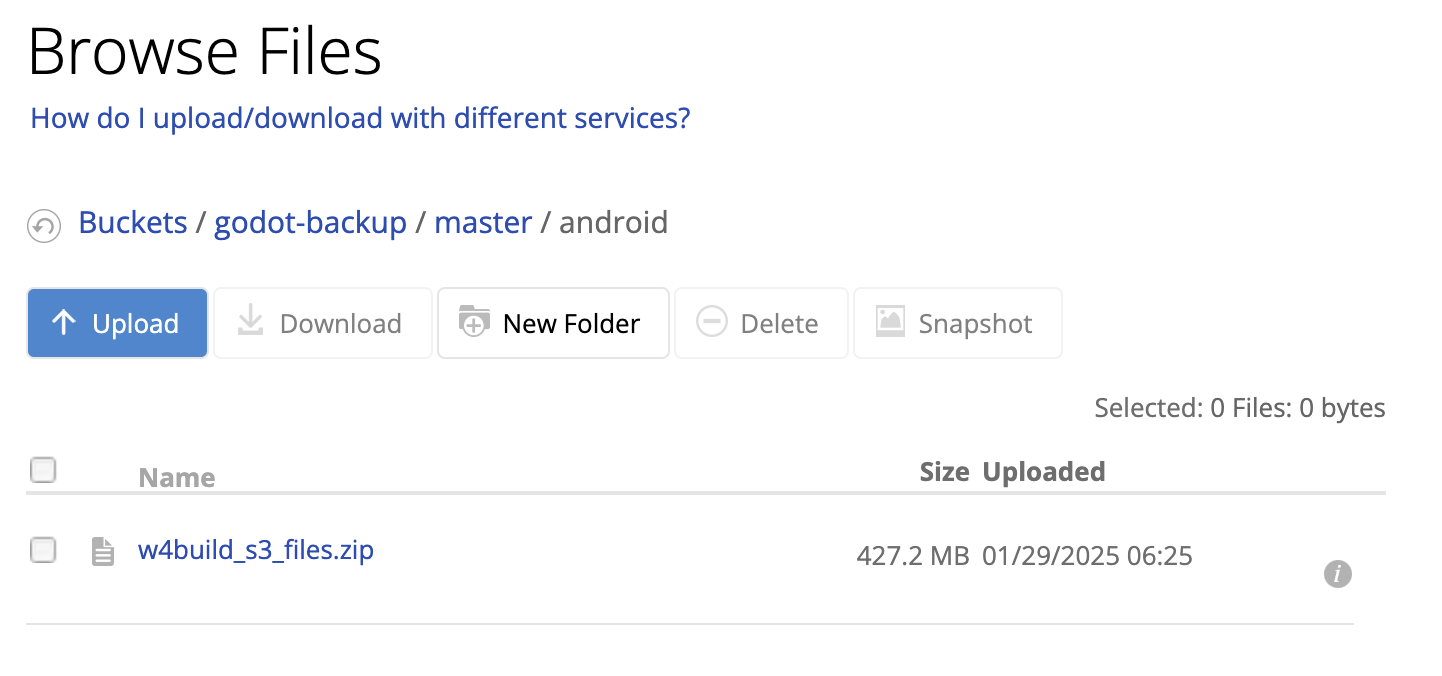Templating
W4build provides a flexible way to configure deployments and notification payloads, allowing you to access context-specific values. For example, if you want to store an artifact in a bucket named either ‘Godot’ or ‘Game’, you don’t need separate deployments. Instead, you can use variables like ${job_name} to dynamically assign the bucket name based on the job context
Job Context
Understanding the context is crucial when using variables. You need to know whether the job is a Game export or a Godot compilation job. Each type of job has its own set of specific variables, so make sure you’re using the right ones for the task at hand
Job Context
In deployments and notifications, the job context can be determined by the rules. If you add a rule that matches a matrix, you can identify the job type by checking which job the matrix is building. For example
The following rule filters builds belonging to a specific matrix. Since this matrix only triggers jobs for exporting games, the context is set to GAME

The following rule filters builds that are exporting games, regardless of the matrix. The context is set to GAME

The following rule filters builds that are compiling Godot, regardless of the matrix. The context is set to GODOT

Variables
Now that you are aware of the context, you can use any of the following variables
Generic variables
These variables are available on all builds, no matter the context
${id}: The build id: uuid${team}: The UUID of the team associated with the build: uuid${event}: The UUID of the event this build is associated with: uuid${start_date}: The start date of the build, in ISO 8601 format: ‘YYYY-MM-DD HH:MM:SS.ffffff’.${end_date}: The completion date, or null if the build is not finished, in ISO 8601 format: ‘YYYY-MM-DD HH:MM:SS.ffffff’.${build_status}: The ID number representing the build status: number${job_name}: The job name as a stringgodotorgame: string${current_stage}: The current stage name of the build: string${dispatch_data}: If the build was triggered by a webhook, it contains the JSON data from that webhook: json${matrix}: If the build was triggered by a matrix, this variable contains the matrix UUID
Godot context specific variables
Godot context contains the generic variables plus:
${platform}: The target platform godot is compiled for linux, windows etc :string${cpu_architecture}: The target cpu architecture godot is copiled for, x86_64 or Universal: string${build_target}: editor, template_release or template_debug${ref}: The Git ref containing the specific branch name, tag or sha: string${git_repo}: The Git repository URL${scons_params}: the list of scon variables for compiling godot : string${profile}: The UUID of the profile file used for compiling godot: uuid
Game context specific variables
Game context contains the generic variables plus:
${ref}: The Git ref containing the specific branch name, tag or sha: string${git_repo}: The Git repository URL${export}: The export type for your game, release or debug: string${export_name}: the given export name for your game: string${preset_name}: The given Godot export configuration name
Examples
itch.io: When deploying to itch.io its useful to have the channel created by game name followed by the platform.
myamazingame/game:${export_name}-${preset_name}Will result in
myamazingame/game:tps_demo-windows
The itch.io deployment configuration looks like

S3: Sometimes it’s useful to back up all files to an S3 service. To make this easier, you can specify the bucket name based on the
${job_name}. This way, all game-related files are stored in a bucket called ‘game’, while compiled Godot files are stored in a bucket called ‘Godot’.${job_name}-backupWill result in
godot-backup
The S3 deployment configuration looks like, every file will be stored on a on a bucket given the job name and a subfolder with the ref value

In backblaze the resulting storage will look like
